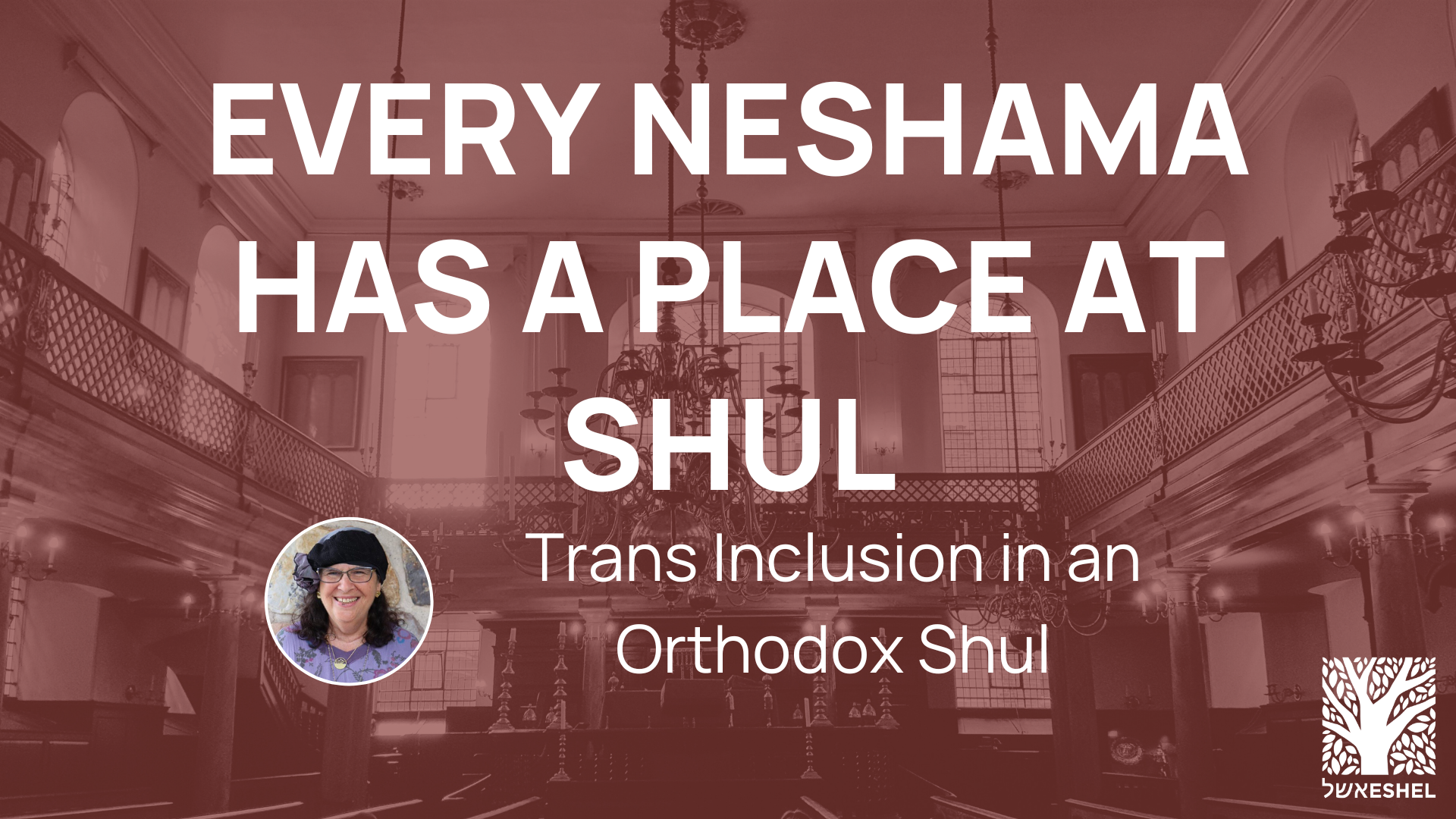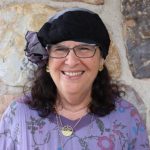
For several years, Eshel’s Welcoming Shuls Project has guided shuls and Rabbis in LGBTQ+ inclusion and helped LGBTQ+ people find the right shul for them and navigate shul life. Despite the increase in anti-trans media coverage and legislation, there is more interest than ever from our Welcoming Shuls to find ways to fully embrace transgender members. While some suggest that trans Jews would have an “easier time” joining a new shul after they’ve already begun to transition, and hiding their trans identity, we have been lucky to be able to support several trans individuals in staying in the same Orthodox community throughout their transition. Being able to remain part of a shul community, and finding love and support there, rather than having to start again somewhere else, can be a source of stability and comfort.
A few months ago, I had the pleasure of working with Caleb*, a trans man, and Rabbi O, the Rabbi of a centrist Orthodox shul. Rabbi O. had expressed to me in the past that he wanted all of his congregants to bring their full and authentic selves to the shul. When Caleb first came out and spoke to Rabbi O. about wanting to sit in the men’s section, Rabbi O. wanted to be supportive, and reached out to ask for guidance about the halachic implications and how to handle this with the community. I spoke with Caleb and Rabbi O. about their hopes and concerns.
I sent Rabbi O. some halachic resources from a range of poskim, and connected him with Rabbi S, whose shul had a similar hashkafa and who I knew had trans congregants who were accepted and fully included in the community. Rabbi S. was happy to share his experiences, and help give Rabbi O. additional insight in how these conversations had gone in his community. Throughout our discussions, I offered Rabbi O. multiple paths that his shul might want to consider, and he was able to think through which ideas would work best for his community while meeting Caleb’s needs.
After Caleb began sitting in the men’s men’s section, Rabbi O. received a small number of complaints from other members of the shul. Together, we came up with several potential approaches, and Rabbi O. decided to tell those who complained that if they were unhappy, they should move somewhere where they couldn’t see Caleb – and at any rate, they should be focused on their own davening, not worrying about where others were sitting. If that didn’t work for them, he said, they were welcome to find another shul. In the end, none of the complainers left the shul.
One would hope they had learned something — that all of us have an important role and unique qualities that add to the success of the community. To be sure, this is not always easy and seamless. This process did come with pushback but in the end, the value of every life was considered, and I would suggest that everyone in this community is better for it.
Caleb thanked me afterwards, and said that Rabbi O. had told him that “his neshama was the same as it was before, and that he deserved to be just as beloved in his community as always.”
While not every community is able to meet the needs of everyone in it, it is remarkable what can be achieved with a compassionate and kind Rabbi, who is committed to the wellbeing of each and every member.
—
If you are a Rabbi looking to make your shul a more welcoming place, have questions about LGBTQ+ inclusion, or if you are a community member looking to find a shul or make your shul more LGBTQ+-inclusive, email Dr. Sunnie Sterling Epstein at sunnie@eshelonline.org.
 Dr. Sunnie Sterling Epstein, Director of the Welcoming Shuls Project
Dr. Sunnie Sterling Epstein, Director of the Welcoming Shuls Project
*Names and details changed to preserve anonymity
